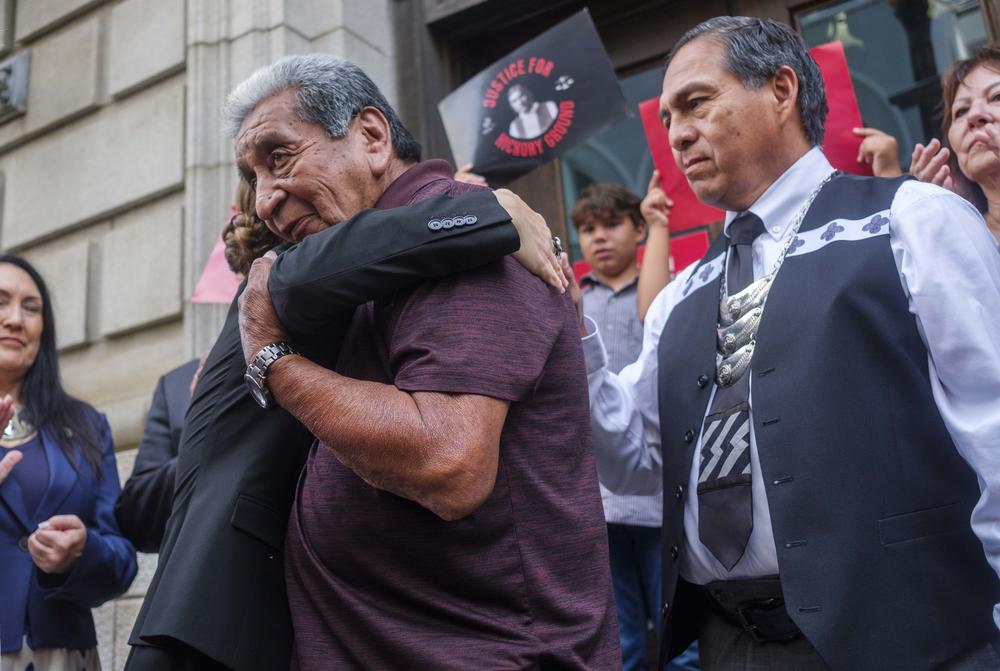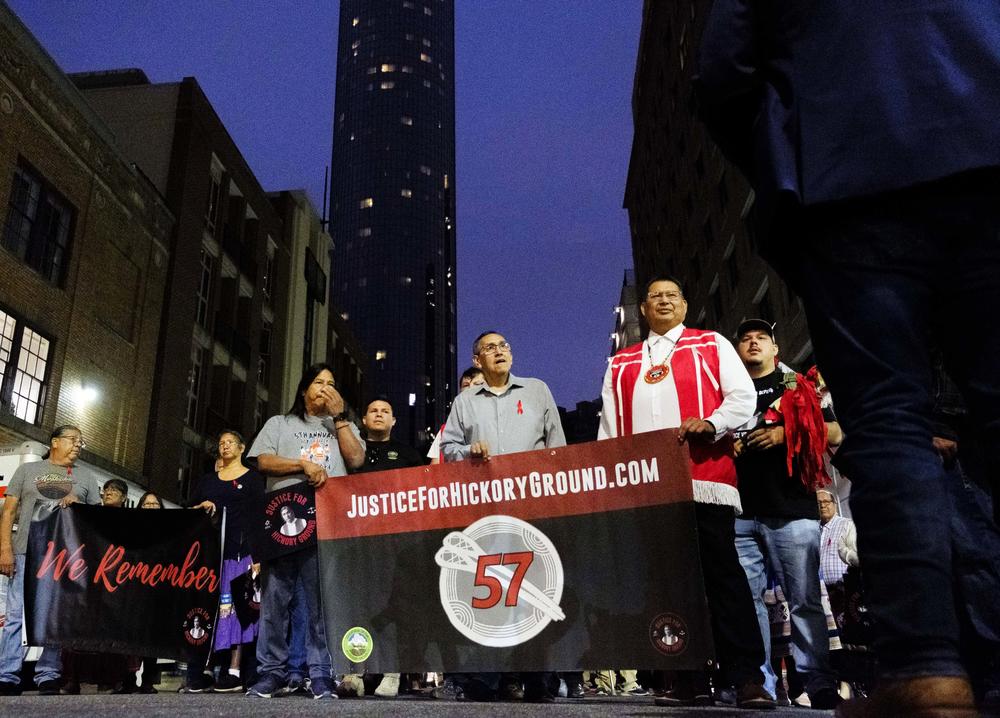
Caption
Flanked by Muscogee Nation Principal Chief David Hill (right) George Thompson, Mekko of the Hickory Ground Muscogee ceremonial ground, hugs Mary Kathryn Nagle after Nagle argued the side of Muscogee Nation before the federal 11th Circuit Court of Appeals in the long-running dispute with the Poarch Band of Creek Indians from Alabama.
Credit: Grant Blankenship/GPB News


